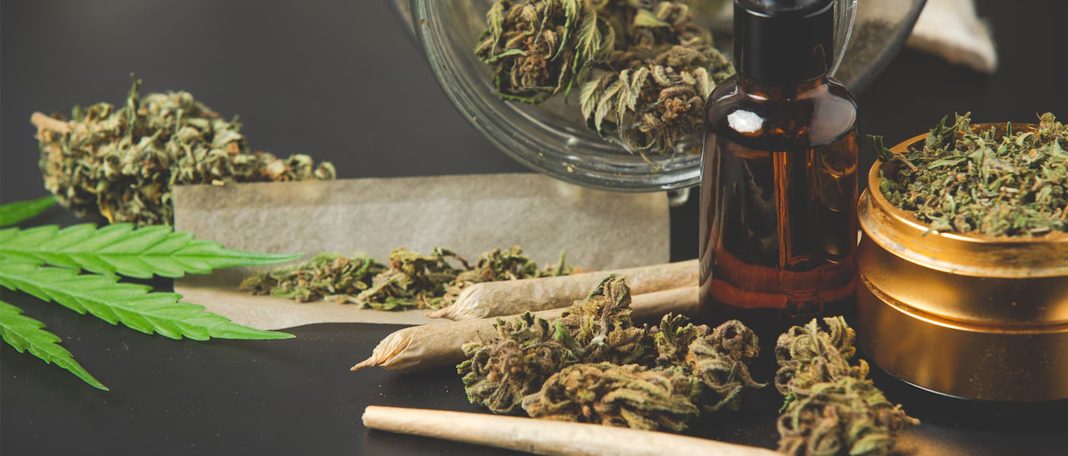Medical marijuana is becoming a popular treatment option for a wide range of medical conditions. Still, there are many misconceptions surrounding the use of marijuana, which can lead to confusion and misinformation.
In this blog post, we will debunk some of the common myths and provide you with the facts.
Let me start with a general question.
What is Medical Marijuana?
Medical marijuana is the cannabis sativa plant, which contains over 100 different chemicals called cannabinoids. THC (tetrahydrocannabinol) and CBD (cannabidiol) are the two major cannabinoids. THC is responsible for the psychoactive effects of marijuana, which is considered a ‘high’ feeling. CBD is a non-psychoactive cannabinoid that helps in promoting feelings of relaxation. It is used for the treatment of certain medical conditions. Moreover, it is strictly regulated and available to only patients having a valid prescription.
Benefits of Medical Marijuana

The benefits are many. But, lemme showcase you the actual benefits of marijuana.
- Cannabinoids help slow down the development or kill a few types of cancer.
- It can be utilized to treat glaucoma that builds pressure in the eyeball, harming the optic nerve and causing loss of vision.
- One of the major medical benefits offered by THC is pain relief. It is also used to treat vomiting and nausea in cancer patients.
- It helps in stimulating brain growth in addition to protecting brain cells against damage.
- Individuals who are experiencing the signs of depression, post-traumatic stress, and anxiety can take dosages of marijuana for relief.
Must Read: Can too much stress cause brain damage?
Myths and Facts About Medical Marijuana

1. Myth: Is Just an Excuse to Get High
Fact: It is used to treat a variety of medical conditions, such as chronic pain, epilepsy, and multiple sclerosis. When it comes to using it for medicinal purposes, the psychoactive effects of marijuana are not the primary focus. Many medical marijuana products are specifically formulated to minimize the “high” feeling while still providing therapeutic benefits.
2. Myth: Is Not Regulated and Can Be Dangerous
Fact: It is subject to strict regulations in many states. This includes testing for potency and contaminants, as well as ensuring that products are labeled accurately. Additionally, it is prescribed by doctors who can guide dosing and usage, minimizing the risk of adverse effects.
3. Myth: Medical Marijuana Is Addictive
Fact: While it is possible to develop a dependence on marijuana, especially if it is used recreationally, the risk of addiction is much lower when it is used for medical purposes under the guidance of a healthcare provider. It is an effective alternative to opioids for managing chronic pain, reducing the risk of addiction to these powerful drugs.
4. Myth: Medical Marijuana Is a Cure-All
Fact: While medical marijuana can be effective in treating a wide range of conditions, it is not a cure-all. Like any medication, it may not work for everyone, and its effectiveness can vary depending on the individual and their specific condition. It is important to talk with an expert to determine if it is the right treatment option for you.
5. Myth: Only Helps Relieve Pain
Fact: It is known to help a range of physical and mental issues. CBD is used to relieve symptoms of chronic physical pain. Some cannabinoids help treat nausea and vomiting, helping people to eat and stay well throughout treatment.
6. Myth: All Medical Marijuana Is the Same
Fact: Marijuana plants are filled with five different cannabinoids to offer you medical benefits in different ways. Certain chemicals can be used to provide the benefit of synergy. Based on treatment requirements, THC (tetrahydrocannabinol), CBD (cannabidiol), CBN (cannabinol), CBC (cannabichromene), or CBG (cannabigerol) can be used.
Final Words
In this blog post, we have discussed some of the benefits and common myths about medical marijuana. We hope that this blog has helped to clear up any misconceptions that you had about some facts, right? Explore this treatment option if you think it might be right for you. But before starting, don’t forget to consult with a doctor.













